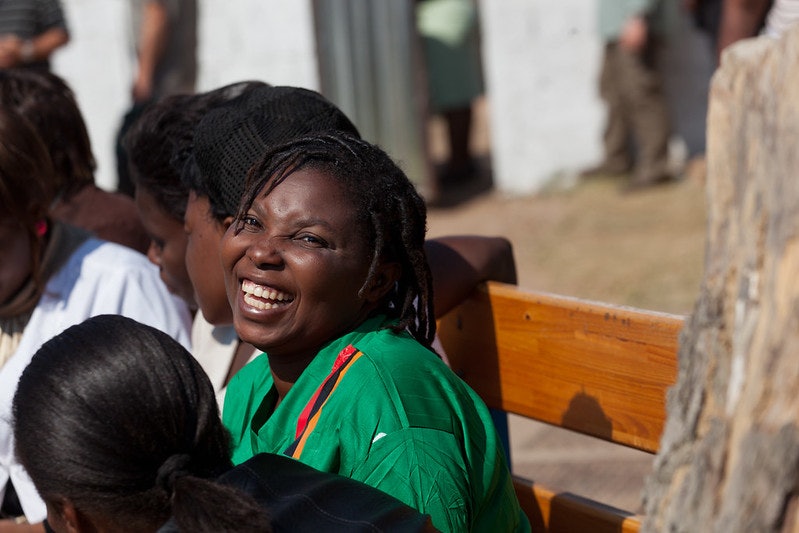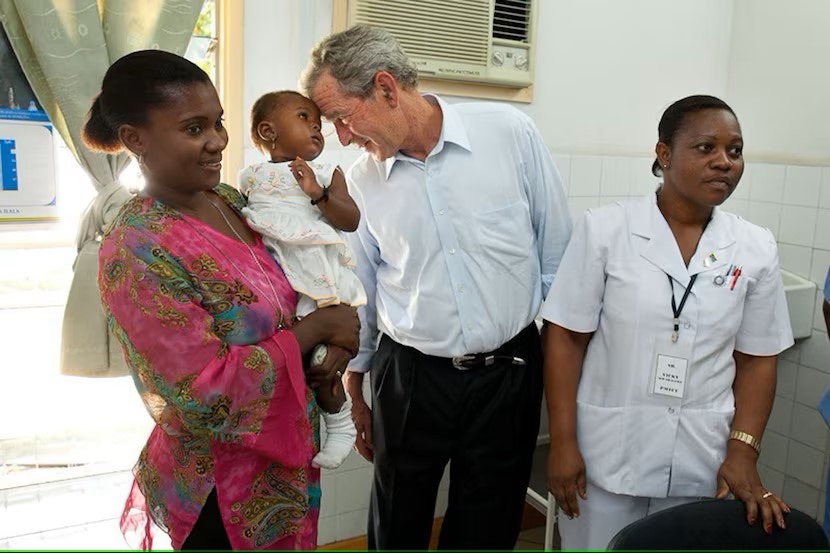U.S. Secretary of State Antony Blinken provides virtual remarks on the impact of the President's Emergency Plan for AIDS Relief at the PEPFAR at 20 event in Washington, D.C. on Feb. 24, 2023.
Below is a full transcript of Secretary of State Antony Blinken’s remarks.
Good morning, everybody.
What a pleasure to be joining you all virtually to commemorate the 20th anniversary of one of the United States’ most transformational foreign assistance programs ever – the President’s Emergency Plan for AIDS Relief.
We wouldn’t be here without the contributions of so many in the audience, and those joining virtually. That begins, first and foremost, with President Bush. Mr. President – as an American and simply as a human being, I’m deeply proud of your leadership in changing so many lives for the better.
Many have spoken to the bleak landscape before this program, but let me just mention one telling detail: A Tanzanian physician, Dr. Leonard Maboko, recently reflected that, before PEPFAR, treatment for his HIV-positive patients was focused on a single, narrow track: counseling them through their end-of-life care options.
When President Bush announced PEPFAR in his 2003 State of the Union address, he pledged that the United States would invest $15 billion to tackle HIV/AIDS over 5 years – the largest commitment ever by any nation to address a single disease.
One of my former colleagues, Sandra Thurman, was listening to that speech on a drive, and recalled that, “I damn near drove off the road… it took my breath away.” Sandra had directed AIDS policy in the Clinton years, and had seen the millions of lives lost to the virus. She understood what a difference such a program could make.
Yet, in its early days, most public health professionals weren’t optimistic about PEPFAR’s prospects. There were considerable barriers, especially in sub-Saharan Africa – including a lack of proper roads to transport medicines and healthcare workers to deliver them.
But it was the commitment of so many that made the program a success.
That includes foreign leaders like President Kikwete and First Lady Kikwete, who countered the stigma against HIV/AIDS by publicly getting tested themselves…
It includes generations of physicians like Ambassador Nkengasong, who’s devoted a lifetime to countering HIV/AIDS – in the lab at the U.S. Centers for Disease Control and Prevention, at the Africa CDC,
and now, to our great fortune, at the State Department, where he’s leading PEPFAR’s future.
And so many others… from PEPFAR’s earliest champions in Congress on both sides of the aisle, especially Representative Barbara Lee and the Congressional Black Caucus, who sent the President a letter in 2002 asking him to launch an initiative to fight AIDS… the public and private sectors… tens of thousands of implementing partners on the ground, who do the day-to-day work required to save millions of lives… all of whom help make the promise of this program real.
Deputy Secretary Sherman shared the many ways PEPFAR has forever changed the lives of those with HIV/AIDS, including by directly saving more than 25 million lives. But it’s also changed the lives of all people.
The same health infrastructure that PEPFAR created – surveillance systems to track outbreaks, laboratories to run diagnostic tests, supply chains to transport medicines, healthcare workers to deliver those medicines – have been used to help people in the face of other health crises, including Ebola, avian flu, and of course, COVID-19.
As I travel around the world, I continue to hear about the extraordinary difference PEPFAR is making. It’s one of the first programs people point to as an example of the United States doing good globally – and I’m so proud to be one of its stewards.
Yet even as we celebrate PEPFAR’s 20 years of impact, we have more work to do to reach the United Nations’ goal of ending the HIV/AIDS pandemic by 2030. We continue to see persistent inequities in access to treatment for vulnerable populations – like children, women and girls, LGBTQI+ people, people who use drugs, and sex workers – as well as gaps in supply of tests and drugs. On World AIDS Day, this past December, the United States launched our latest PEPFAR five-year strategy, which targets these inequities.
PEPFAR has been successful in part because of the bipartisan support its enjoyed since its creation, across four administrations and ten Congresses. And that support has to continue. Congress’s reauthorization of PEPFAR this September is vital. Millions of lives depend on it.
We must also make advancing health security an elevated and permanent focus of American diplomacy. That’s why, in December, I notified Congress of my intent to establish a Bureau of Global Health Security and Diplomacy – so we can continue the State Department’s longstanding fight against HIV/AIDS through PEPFAR, and so we can apply the program’s lessons, and the full weight of the Department, to prevent, detect, and respond to existing and future health threats.
PEPFAR shows what we can do at our best – work together across divides, in partnership with the rest of the world, to make progress against a seemingly intractable problem. And preserve millions of lives. Let us learn from it, and build on its lifesaving work.






























